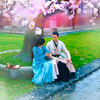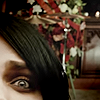challenge 198: pumpkin patch 6
Nov. 3rd, 2025 04:48 pmI picked palette number 7!
All from the ace attorney games.
links: https://i.imgur.com/L6AZ1xK.png'/ https://i.imgur.com/QP3ZMhc.png / https://i.imgur.com/O51aoaE.png / https://i.imgur.com/iJ4jGdT.png / https://i.imgur.com/xHz5GjA.png
 |
 |
 |
 |
 |
All from the ace attorney games.
links: https://i.imgur.com/L6AZ1xK.png'/ https://i.imgur.com/QP3ZMhc.png / https://i.imgur.com/O51aoaE.png / https://i.imgur.com/iJ4jGdT.png / https://i.imgur.com/xHz5GjA.png








